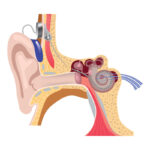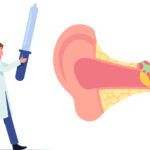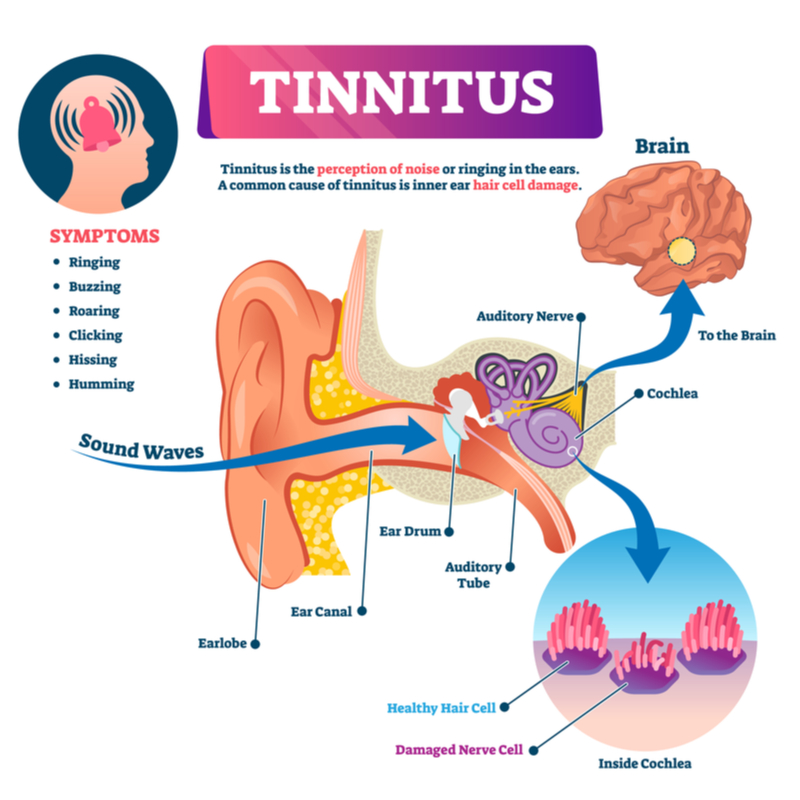Understanding Tinnitus: The Fine Line Between Temporary and Permanent
There are two types of tinnitus – temporary and permanent. Listed below are the causes and symptoms of each type of tinnitus. Read on to learn more about your options for treatment. There are also many options for counseling if you'd like to find out more about the condition. In this article, we'll discuss the differences between temporary and permanent tinnitus, as well as some common treatments.
Tinnitus Symptoms

In about 10% of cases, tinnitus is permanent. Symptoms will not go away for three months or more if left untreated. Treatment for tinnitus involves lifestyle changes and cognitive restructuring. During this treatment, patients perform homework and keep a diary. Though tinnitus will not completely go away, it will be more manageable and will have a minimal effect on the quality of life.
Some of the causes of temporary tinnitus are earwax or growth in the ear. Getting rid of blockages may help to reduce the symptoms. If the tinnitus persists for longer periods, you should see a hearing health professional, as they can check your ears and determine the cause of the problem. Some types of tinnitus are neurological, and they must be diagnosed by a physician to rule out other causes.
Some people are at risk for tinnitus because of a variety of medical conditions. It is most common in people who have age-related hearing loss. Other causes are exposure to loud noise, medications that damage the ear nerves, and impacted earwax. Tinnitus may also occur in those with Meniere's disease, a condition affecting the balance mechanism of the inner ear.
If symptoms persist beyond a few days, a doctor may recommend an MRI of the ear, head, and neck. Blood tests may also be necessary to rule out underlying conditions. Blood tests are an important first step in diagnosing temporary tinnitus. MRIs can help diagnose vascular issues. These tests are non-invasive and rarely painful. Nevertheless, you should consider getting a tympanogram before taking any action.
While there is no known cause of tinnitus, it is a common symptom of an underlying problem. It can be caused by certain medicines or conditions, such as Meniere's disease. While most cases of tinnitus are temporary, they can occur for a long period of time or even permanently. For some people, prolonged exposure to loud noises is the culprit, but there are also solutions.
Tinnitus Causes
There are many possible causes of temporary tinnitus. Oftentimes, it is the result of inner ear damage. This can be due to exposure to loud noise, age, or even excessive earwax. The whistling sound that patients hear is caused by this inner ear damage. If you are experiencing this symptom, you should see your doctor learn more about the cause.
Some causes of tinnitus include blood vessel disorders, which result in an increase in blood flow to the ears. Other causes are chronic conditions such as diabetes, migraines, anemia, and autoimmune disorders. If you have temporary tinnitus, it is important to understand the causes and seek medical attention as soon as possible. In addition, proper ear cleaning is important to prevent foreign particles from breaking the inner ear coating.
Certain medicines are associated with temporary tinnitus. Antibiotics and nonsteroidal anti-inflammatory drugs can cause tinnitus. Other common medications include aspirin, antibiotics, and water pills. You should consult with your doctor before taking any new medication. The cause of temporary tinnitus can be difficult to diagnose, but there are ways to address it. In general, you may only need to consult a health care professional if you notice a change in your tinnitus.
Another cause of temporary tinnitus is exposure to loud noise. Exposure to loud noises can damage the nerves in the ear, which are responsible for hearing. If you're constantly exposed to loud noise, you may develop temporary tinnitus and need to consult a medical professional. A physician can prescribe a hearing aid or therapy to control your ringing ears.
Another cause of temporary tinnitus is stress. Stress causes the sounds to get louder and can interfere with sleep. The following are some common causes of tinnitus. Stress and overexposure to loud noises are the main causes of temporary tinnitus. For more information about the causes of tinnitus, visit the site below. You can find the cause of tinnitus by visiting a health care professional or online.
Treatments for Tinnitus
If you are suffering from ringing in the ears, it is best to visit a doctor for an evaluation. If the problem is persistent, your primary care physician may suggest seeing a doctor specializing in hearing disorders or an otolaryngologist. This specialist can perform necessary tests to determine the cause of your ringing and recommend treatments if needed. While temporary tinnitus generally lasts for two weeks, some people experience longer bouts.
There are various treatments for tinnitus, but no one strategy is guaranteed to work for everyone. While age-related hearing loss makes tinnitus less noticeable, a hearing aid can help you hear outside sounds better. Other treatments for tinnitus include acupuncture and Ginkgo Biloba. These treatments are not a cure for tinnitus but can help you feel better.
Cognitive behavioral therapy is another treatment option for temporary tinnitus. CBT involves teaching patients how to cope with the condition by changing how they think. This method is effective for people who are suffering from tinnitus because it helps them change how they view it. Some people even report better mental health and a better quality of life. The success rate of cognitive behavioral therapy depends on the severity of the tinnitus and the health of the patient.
Other therapies include meditation and mindfulness-based relaxation techniques. During meditation, patients can focus on their breathing and focusing on the present. This technique can also be effective for individuals who are constantly stressed. In addition, it can reduce stress and help you manage the symptoms. If you are experiencing temporary tinnitus, meditation is another great option. If you can relax, your condition will improve. This will allow you to enjoy your daily activities without the ringing in your ears.
Some people may experience tinnitus due to a medical condition. When it is caused by an underlying condition, it will usually go away once the underlying condition is resolved. An ear infection, for example, can cause ringing in the ears. This is usually a bacterial or viral infection that causes swelling and fluid to build up in the ear. If the condition is persistent, it is best to seek the advice of an audiologist as early intervention is important to prevent the onset of permanent tinnitus.
Counseling options for Tinnitus

There are many different treatments available for tinnitus, including pharmacotherapy, sound therapy, and cognitive-behavioral therapy. These treatments can be used to reduce the intensity of the noise and reduce the associated annoyance. Other treatment options include traditional behavioral therapy and massage and stretching. Some people also turn to hear aids for tinnitus. A licensed mental health professional can help you find the most effective treatment options for your specific condition.
There are several types of therapy available. Biofeedback involves teaching you how to control various body functions. By doing this, you can learn to change how you respond to tinnitus and eventually eliminate the problem. Another treatment option is cognitive behavioral therapy, which aims to teach you how to change your thoughts about the noise. This treatment is often used in conjunction with a therapist and may include distraction techniques.
If you are suffering from tinnitus, you should consider talking to your doctor about treatment options. It is important to remember that tinnitus is a temporary condition and that the cause may not be completely known. However, therapy can help you cope better with your symptoms and minimize the stress that you feel. A tinnitus treatment plan can help you manage your stress levels and reduce your annoyance.
Tinnitus is often described as a ringing or buzzing sound that is experienced in the ears. The noise is a symptom of a problem with the auditory system. Over time, the condition can be habituated, but paying attention to it makes it more difficult to deal with. If you've had enough time to address the problem, you might want to consider counseling. Your doctor will be able to prescribe treatment for the condition and help you get back on your feet.
Tinnitus is a common condition that affects approximately 50 million people in the United States. The condition is most common among people with ear infections and damage to the inner ear, but some medications can actually make the condition worse. Many people with tinnitus have a difficult time coping with the discomfort, so it's important to get the help that you need. The key is not to let it get you down. Counseling can help you learn to live with tinnitus and find a solution that works for you.
conclusion
In conclusion, tinnitus is a common condition that affects millions of people around the world. It can be temporary or permanent, and its causes are numerous. Some of the common causes of temporary tinnitus are exposure to loud noise, stress, and certain medications. It is important to seek medical attention if you experience symptoms of tinnitus, as early intervention can help prevent permanent hearing loss.
There are various treatments available for tinnitus, including cognitive behavioral therapy, sound therapy, and meditation. These treatments can help manage the symptoms and reduce stress. It is important to remember that tinnitus is a treatable condition, and counseling options are available to help you manage your symptoms and improve your quality of life.
Sources
- Mayo Clinic: https://www.mayoclinic.org/diseases-conditions/tinnitus/symptoms-causes/syc-20350156
- National Institute on Deafness and Other Communication Disorders: https://www.nidcd.nih.gov/health/tinnitus
- American Academy of Otolaryngology-Head and Neck Surgery: https://www.enthealth.org/conditions/tinnitus/







